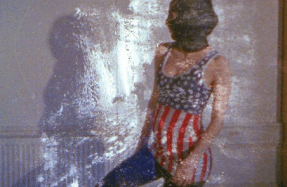
There’s a violence inherent in modern medicine—not just in the physical intrusions that take place during a surgical procedure, but in the language of medicine itself. Foucault wrote of the “medical gaze,” a way of looking at the patient’s body through the lens of scientific knowledge, interpreting its visible symptoms and signs using pre-cut terminology and systems of classification. Under this gaze, the body is denuded of personhood, its individual mysteries razed for the greater good; when maladies arise, one can only hope that the doctor has seen it all before, can identify the problem, and relate it to an established index of ailments and remedies.
Claire Simon’s —which captures the visitations and (2016), a Wiseman-like study of the admissions process to France’s top film school, La Fémis; and (2018), which is made up almost entirely of conversations between groups of teenagers.






